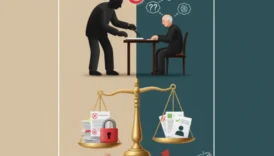What Is a Legal Waiver?

In law and contracts, a party may choose to voluntarily give up a legal right or claim. This act is formalized through a legal waiver, a common mechanism in agreements, business transactions, and personal injury cases. Waivers help streamline relationships by reducing disputes and clarifying responsibilities.
Simple Definition
A legal waiver is the voluntary relinquishment of a known legal right, claim, or privilege, usually expressed in writing and agreed to by the affected party.
Real-Life Examples
- Sports activities: Participants sign waivers releasing organizers from liability for injuries.
- Settlement agreements: A plaintiff agrees to waive further claims after receiving compensation.
- Employment contracts: Employees waive certain rights, such as arbitration clauses replacing lawsuits.
- Consumer services: Gyms, travel companies, or event organizers often require waivers before participation.
Importance of the Term
- Protects providers: Shields businesses and organizations from lawsuits.
- Clarifies risks: Ensures individuals understand and accept potential dangers.
- Supports finality: Prevents repeated claims after settlements.
- Encourages participation: Allows activities and services that might otherwise carry too much legal risk.
Waiver vs. Forbearance
| Factor | Waiver | Forbearance |
|---|---|---|
| Nature | Permanent surrender of a right | Temporary delay in enforcing a right |
| Duration | Final and binding | Often limited or conditional |
| Example | Signing away right to sue | Lender postpones foreclosure temporarily |
FAQ
1) Is a waiver legally enforceable?
Yes, but only if it is clear, voluntary, and not against public policy.
2) Can a waiver cover gross negligence?
Usually no. Most jurisdictions do not allow waivers for intentional harm or gross negligence.
3) Does a waiver always need to be in writing?
Written waivers are strongest, but in some cases, verbal or implied waivers may be recognized.
4) Can waivers be revoked?
Once signed and agreed, they are generally final, though exceptions exist in cases of fraud or coercion.
5) Why are waivers common in recreational activities?
Because they protect organizers from liability while allowing people to engage in higher-risk activities.
Closing
A legal waiver is a powerful tool that allows individuals to voluntarily give up legal rights or claims. By protecting businesses and clarifying risks, waivers balance freedom of contract with legal safeguards.






